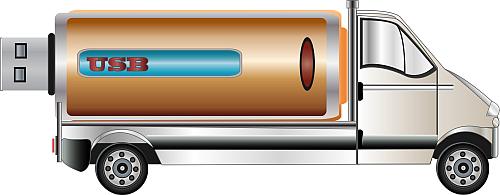 Geneva
Geneva
With growing trade volumes and increasingly complex supply chain procedures, ensuring the efficient movement of goods is crucial. To this end, Governments are adapting traditional legal instruments to new technologies by implementing “e-governance” solutions. The latest development is the possibility of using electronic consignment notes in international road transport.
On 7 March 2011, the conditions for the entry into force of the “Additional Protocol to the Convention on the Contract for the International Carriage of Goods by Road (CMR) concerning the Electronic Consignment Note” —also known as the e-CMR — were met as Lithuania became the fifth State to deposit its instrument of ratification (together with Bulgaria, Latvia, the Netherlands and Switzerland). As a result, the Protocol will enter into force on 5 June 2011, in accordance with article 8(1).
The entry into force of the Protocol is of particular importance as it establishes the legal framework and standards for using electronic means of recording and storing consignment note data, thus making information transfer faster and more efficient than with paper-based systems. In particular, the consignment note, as well as any demand, declaration, instruction, request, reservation or other communication relating to the performance of a contract of carriage to which the CMR Convention applies, may be carried out by electronic communication. The e-CMR will reduce the scope of error in dealing with identification and authentication of signatures.
For more information please visit http://www.unece.org/trans/main/sc1/sc1.html?expandable=99
“e-CMR” offers road transport industry 21st century solution
United Nations Economic Commission for Europe
Information Unit
Tel.: +41 (0) 22 917 12 34
Email: [email protected]
Reproduction is permitted provided that the source is acknowledged.